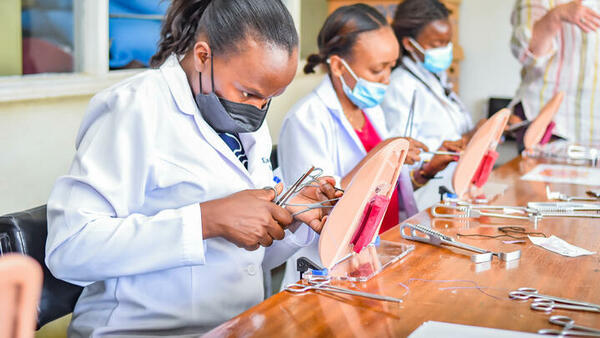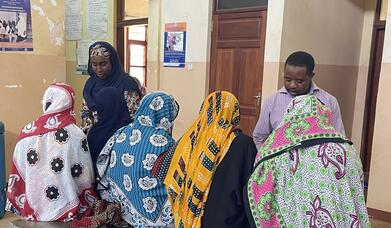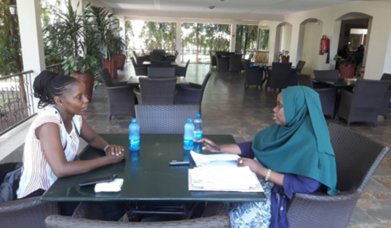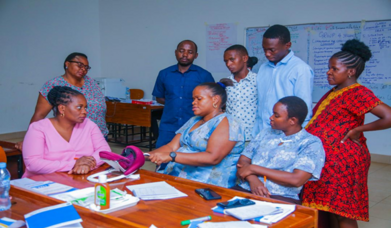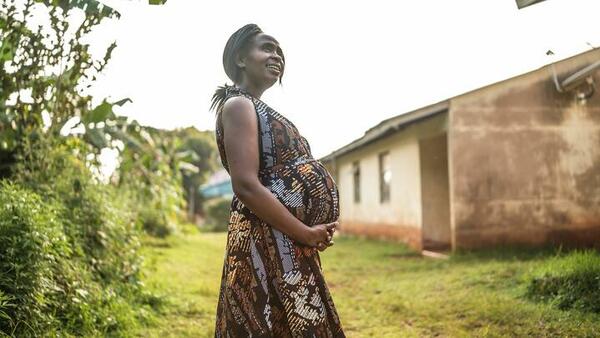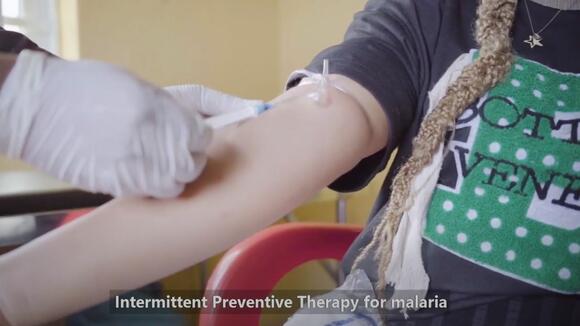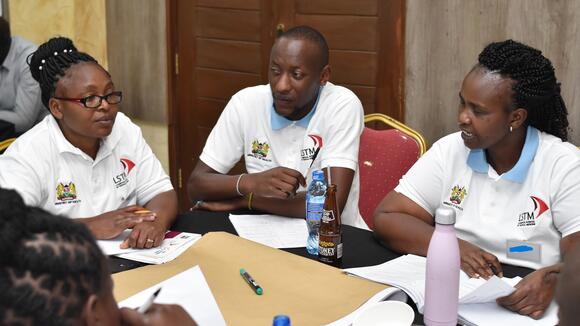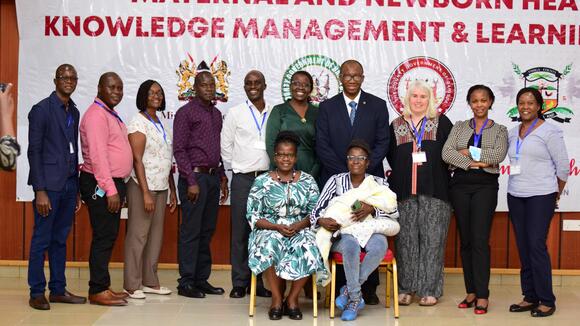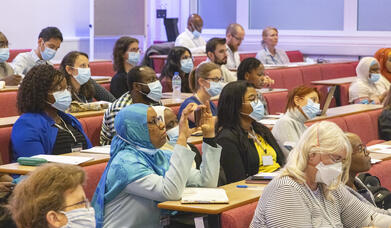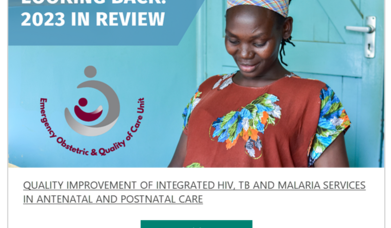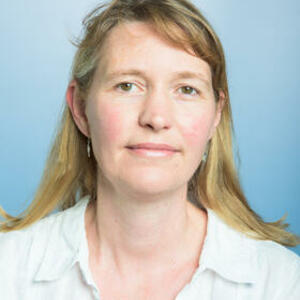
Emergency Obstetric and Quality of Care Unit
- Home
- Research
- Departments
- International Public Health
- Emergency Obstetric and Quality of Care Unit
About
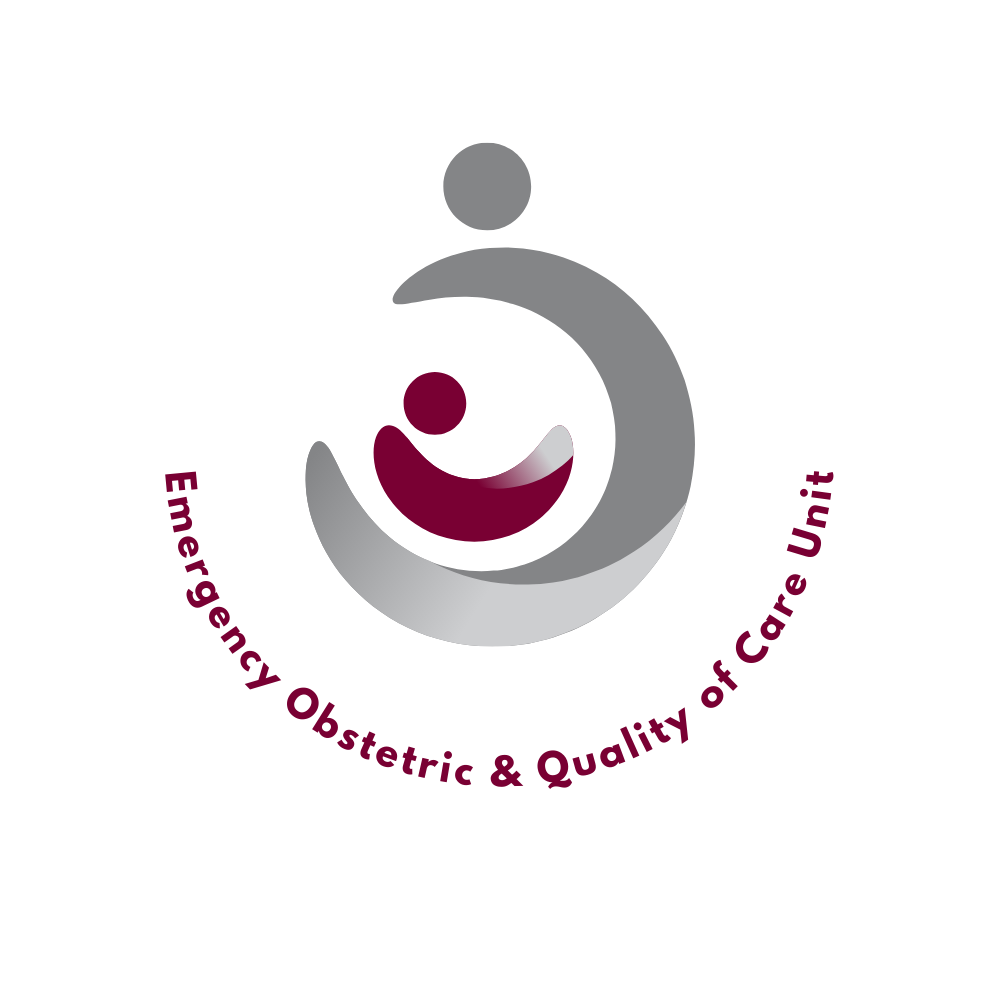
The Emergency Obstetric & Quality of Care Unit (EmOC&QoC) combines research with capacity strengthening to improve availability and quality of maternal and newborn care and to reduce maternal morbidity and mortality.

Professor Charles Ameh, Head of Department for International Public Health, leads our EmOC&QoC Unit. We are a multi-national, multi-disciplinary team with broad expertise in designing, implementing and evaluating interventions, adapting these to country- and context-specific settings and working in genuine partnership with governments, academic institutions, and donors .
He is co-Director of the World Health Organisation Centre for Research in Maternal and Newborn Health, alongside Professor Dame Tina Lavender.
> Aims and Objectives
What we do
We focus on evaluation and implementation research aimed at strengthening health systems for women and newborns. Specific areas of research include Antenatal Care (ANC) and Postnatal Care (PNC), Emergency Obstetric Care (EmOC), Quality of Care (QoC) and Obstetric Clinical Monitoring Tools.
Emergency Obstetric Care (Undergraduate training, Post-graduate training, Training retention)
Quality of Care (Antenatal and Postnatal Care (ANC&PNC), Maternal Death Surveillance and Response Systems, MDSR accountability frameworks)
Obstetric Clinical Care Monitroing Tools (Early Warning Systems)
Behind the research - Our PhD student's stories
Integrated HIV, TB and Malaria Care Supports Mothers-to-Be and Newborns in Kenya
A story from our funders and partners The Global Fund
In Kenya, HIV, TB and malaria impact millions of people every year. According to the World Health Organization, there were an estimated 5 million malaria cases in Kenya in 2022 – many of these among pregnant women and children under 5. TB is the fourth-leading cause of death among communicable, maternal and neonatal diseases, and Kenya is one of the top high-burden countries for HIV.
In just three years, the integrated care program administered by the Liverpool School of Tropical Medicine has trained more than 1,200 health workers across Kenya, Tanzania and Nigeria – reaching more than 1.3 million pregnant women and families.
Current Projects
- Evaluation of an innovative programme to drive down maternal and neonatal mortality in Nigeria - funded by Gates Foundation
- PAMOJA - Comprehensive Improvement of Maternal and Child Care in Vihiga County - funded by Polish Aid + Treating with a mission
- Advanced EmONC competency-based curriculum for resident doctors in OBGYN at the NPMC - funded by UK DHSC
- Integrated Approach in Improving Maternal and Newborn Health Outcomes in Kenya - funded by UNFPA
- Quality Improvement of Integrated HIV, TB and Malaria Services in ANC&PNC funded by Global Fund/Takeda
- Quality improvement for Integrated HIV, TB and Malaria services during ANC&PNC–Togo funded by Global Fund
- Completed Programmes
Partnerships

We collaborate with partners across the UK and internationally to ensure our research is high-quality and directly applicable to global health priorities.
News and blogs from the Unit
-
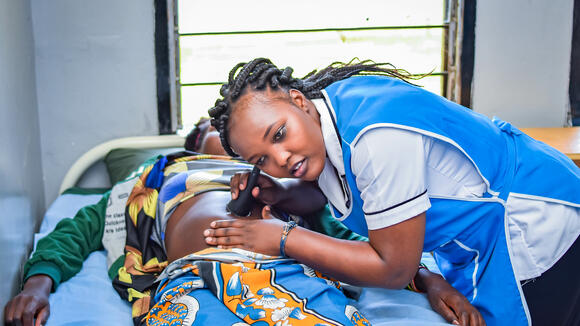 From: LSTMFive Years of Transformational Partnership: Capacity Strengthening Across Kenya, Nigeria, and TanzaniaNews article22 May 2025
From: LSTMFive Years of Transformational Partnership: Capacity Strengthening Across Kenya, Nigeria, and TanzaniaNews article22 May 2025 -
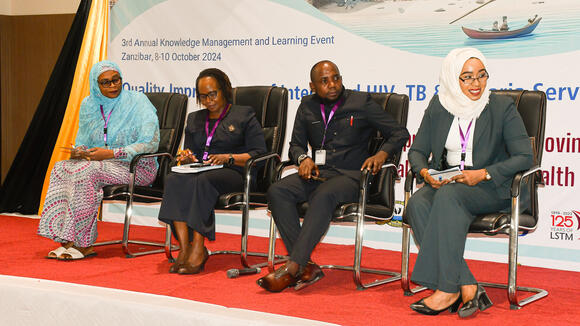 From: LSTMEnhancing Maternal and Newborn Health: Impact of Quality Improvement and Blended Learning InitiativesNews article31 Jan 2025
From: LSTMEnhancing Maternal and Newborn Health: Impact of Quality Improvement and Blended Learning InitiativesNews article31 Jan 2025 -
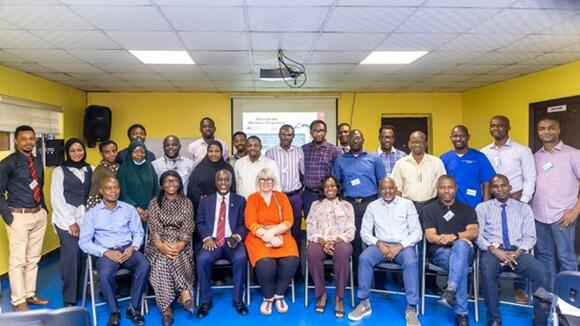 From: LSTMFinal Phase of Advanced Obstetrics Training in Nigeria launchedNews article9 Dec 2024
From: LSTMFinal Phase of Advanced Obstetrics Training in Nigeria launchedNews article9 Dec 2024 -
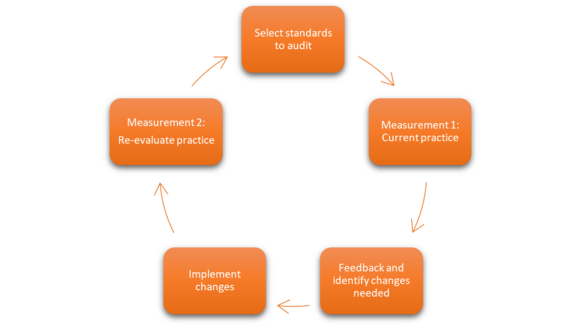 From: LSTMInnovative Ways to Improve Quality of Antenatal and Postnatal Care (ANC-PNC) Services: Garissa County experience, KenyaBlog13 Aug 2024
From: LSTMInnovative Ways to Improve Quality of Antenatal and Postnatal Care (ANC-PNC) Services: Garissa County experience, KenyaBlog13 Aug 2024 -
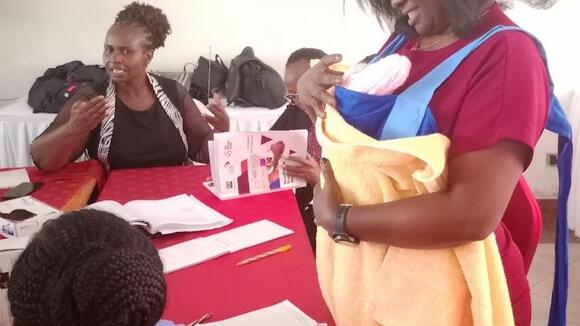 From: LSTMCapacity Building of Healthcare Workers In Integrated HIV, TB and Malaria in ANC and PNC: Face-To-Face ANC/PNC Training in Vihiga and Uasin Gishu Counties, KenyaBlog7 Aug 2024
From: LSTMCapacity Building of Healthcare Workers In Integrated HIV, TB and Malaria in ANC and PNC: Face-To-Face ANC/PNC Training in Vihiga and Uasin Gishu Counties, KenyaBlog7 Aug 2024 -
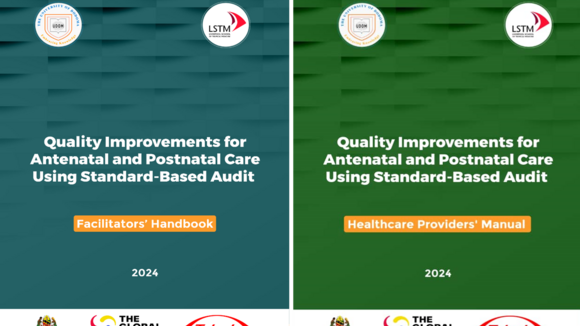 From: LSTMCreating A Culture of Quality: Standard-Based Audits for Improved Antenatal and Postnatal Care ServicesNews article6 Aug 2024
From: LSTMCreating A Culture of Quality: Standard-Based Audits for Improved Antenatal and Postnatal Care ServicesNews article6 Aug 2024 -
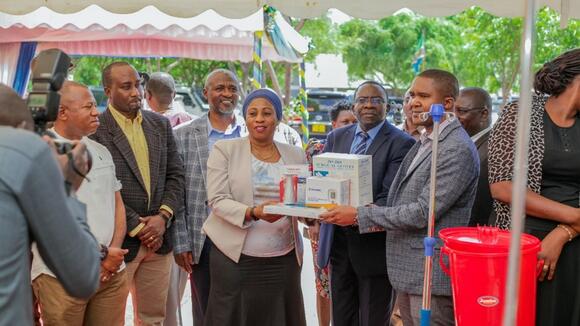 From: LSTMEssential Medical Tools Are Saving the Lives of Mothers and Transforming Maternal and Child Health in Dodoma, TanzaniaNews article18 Jun 2024
From: LSTMEssential Medical Tools Are Saving the Lives of Mothers and Transforming Maternal and Child Health in Dodoma, TanzaniaNews article18 Jun 2024 -
 From: LSTMThird Batch of Advanced Obstetrics and Surgical Skills Training for NPMCN Examiners in Abuja, NigeriaNews article12 Jun 2024
From: LSTMThird Batch of Advanced Obstetrics and Surgical Skills Training for NPMCN Examiners in Abuja, NigeriaNews article12 Jun 2024 -
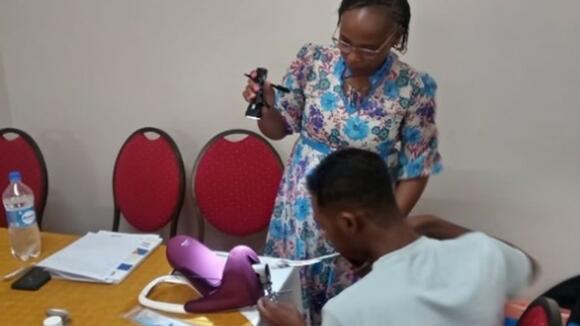 From: LSTMUse of the Blended Learning Approach in Antenatal and Postnatal Care Training for Frontline Healthcare Workers – The Garissa County (Kenya) ExperienceBlog4 Jun 2024
From: LSTMUse of the Blended Learning Approach in Antenatal and Postnatal Care Training for Frontline Healthcare Workers – The Garissa County (Kenya) ExperienceBlog4 Jun 2024 -
 From: LSTMLiverpool School of Tropical Medicine and Wellbeing Foundation Africa Begin Second Batch of Advanced Training for NPMCN Examiners in NigeriaNews article3 Jun 2024
From: LSTMLiverpool School of Tropical Medicine and Wellbeing Foundation Africa Begin Second Batch of Advanced Training for NPMCN Examiners in NigeriaNews article3 Jun 2024 -
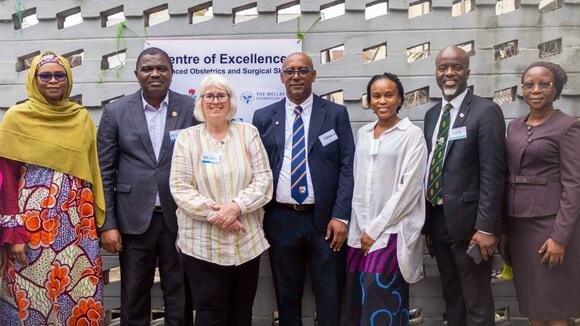 From: LSTMLiverpool School of Tropical Medicine and Wellbeing Foundation Africa launch Advanced Training for Resident Doctors in NigeriaNews article9 May 2024
From: LSTMLiverpool School of Tropical Medicine and Wellbeing Foundation Africa launch Advanced Training for Resident Doctors in NigeriaNews article9 May 2024 -
 From: LSTMMidwives at the Forefront of the Fight Against Climate Change: The Case of Ijara Sub County Hospital, GarissaBlog3 May 2024
From: LSTMMidwives at the Forefront of the Fight Against Climate Change: The Case of Ijara Sub County Hospital, GarissaBlog3 May 2024 -
 From: LSTM'Kumbe, Yuko Sawa (… By the way, s/he is fine)' - Access to Essential Medical Equipment: An Indispensable Aspect of Quality Patient Care (Uasin Gishu County, Kenya)Blog30 Apr 2024
From: LSTM'Kumbe, Yuko Sawa (… By the way, s/he is fine)' - Access to Essential Medical Equipment: An Indispensable Aspect of Quality Patient Care (Uasin Gishu County, Kenya)Blog30 Apr 2024 -
 From: LSTM‘WE DID IT!’: Hulugho sub-county hospital team in Kenya improves the physical environment for antenatal and postnatal mothersBlog4 Mar 2024
From: LSTM‘WE DID IT!’: Hulugho sub-county hospital team in Kenya improves the physical environment for antenatal and postnatal mothersBlog4 Mar 2024 -
From: LSTMUsing Standards-Based Audit for improved quality of MNH Care: Enhanced screening for Anaemia in ANC at Esiarambatsi Health Centre, Vihiga CountyBlog4 Mar 2024
-
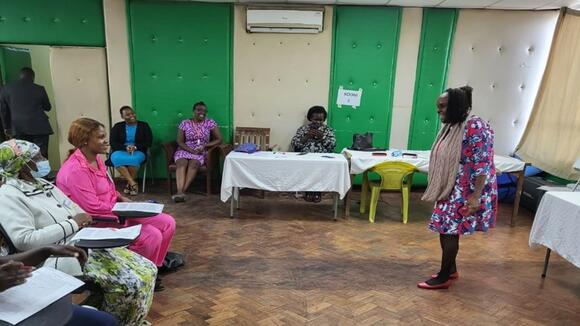 From: LSTMStrengthening health systems capacity for improved Maternal and Newborn health outcomes: EmONC training and mentorship for frontline healthcare providers in Nairobi -KenyaBlog2 Feb 2024
From: LSTMStrengthening health systems capacity for improved Maternal and Newborn health outcomes: EmONC training and mentorship for frontline healthcare providers in Nairobi -KenyaBlog2 Feb 2024 -
 From: LSTMStrengthening pre-service midwifery education: evidence to inform policy and practice for impactBlog17 Jan 2024
From: LSTMStrengthening pre-service midwifery education: evidence to inform policy and practice for impactBlog17 Jan 2024 -
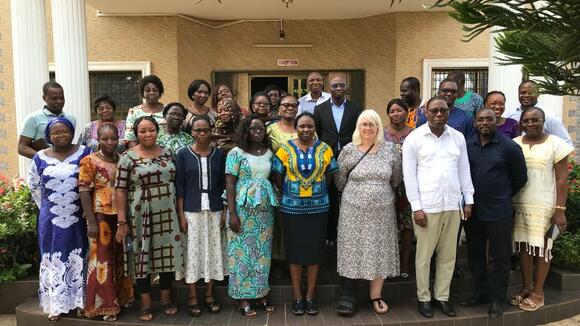 From: LSTMAnnual dissemination meeting for quality improvement of integrated HIV, Tuberculosis and Malaria services during antenatal and postnatal care in TogoBlog8 Jan 2024
From: LSTMAnnual dissemination meeting for quality improvement of integrated HIV, Tuberculosis and Malaria services during antenatal and postnatal care in TogoBlog8 Jan 2024 -
 From: LSTMMaternal and Newborn Health Care: Investing in skilled healthcare workers for Integrated HIV/AIDS care services in Antenatal and Postnatal clinicsBlog4 Dec 2023
From: LSTMMaternal and Newborn Health Care: Investing in skilled healthcare workers for Integrated HIV/AIDS care services in Antenatal and Postnatal clinicsBlog4 Dec 2023 -
 From: LSTMInternational Day for the Elimination of Violence Against WomenBlog25 Nov 2023
From: LSTMInternational Day for the Elimination of Violence Against WomenBlog25 Nov 2023 -
 From: LSTMMaternal and Newborn Continuum of Care: Cross-Country learning on capacity strengthening in midwifery pre-service education and improved quality of integrated HIV, TB and Malaria in ANC and PNCBlog1 Nov 2023
From: LSTMMaternal and Newborn Continuum of Care: Cross-Country learning on capacity strengthening in midwifery pre-service education and improved quality of integrated HIV, TB and Malaria in ANC and PNCBlog1 Nov 2023 -
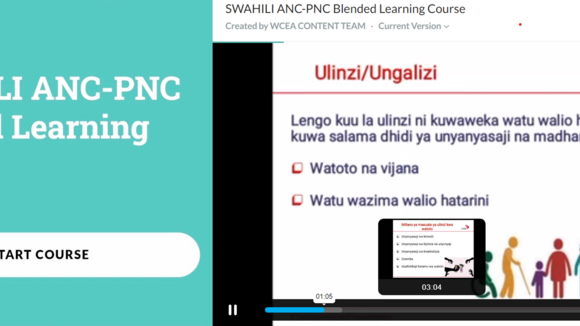 From: LSTMBreaking Down Language Barriers: Translating ANC and PNC Blended Learning Course for Improved Quality of Care in ANC and PNC in TanzaniaBlog31 Oct 2023
From: LSTMBreaking Down Language Barriers: Translating ANC and PNC Blended Learning Course for Improved Quality of Care in ANC and PNC in TanzaniaBlog31 Oct 2023 -
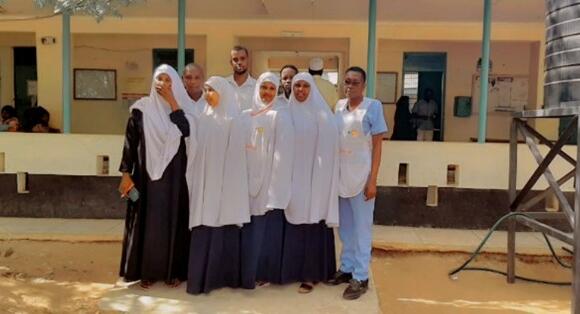 From: LSTMStrengthened health information system to improve the care of every woman and new-born: Use of standardised medical records in Iftin Sub-County Hospital, Garissa CountyBlog28 Sep 2023
From: LSTMStrengthened health information system to improve the care of every woman and new-born: Use of standardised medical records in Iftin Sub-County Hospital, Garissa CountyBlog28 Sep 2023 -
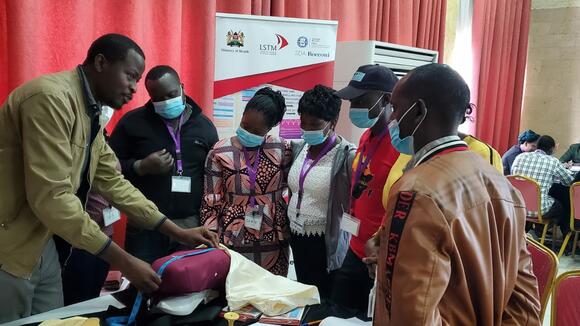 From: LSTMEight and more antenatal care contacts in pregnancy, is it feasible?Blog27 Sep 2023
From: LSTMEight and more antenatal care contacts in pregnancy, is it feasible?Blog27 Sep 2023 -
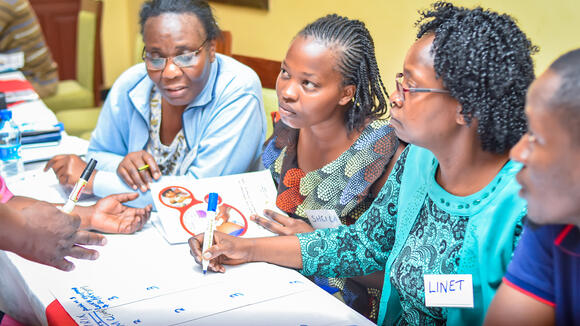 From: LSTMQuality Improvement for Better Maternal and Newborn Outcomes: Implementation of a Standards-Based Audit at Vihiga County Referral HospitalBlog2 Aug 2023
From: LSTMQuality Improvement for Better Maternal and Newborn Outcomes: Implementation of a Standards-Based Audit at Vihiga County Referral HospitalBlog2 Aug 2023 -
From: LSTMImproving maternal and newborn healthcare access in humanitarian settings: Is it Time to Rethink Our Strategy?Blog5 Jul 2023
-
 From: LSTMFor the good of the African Child: making sense of the digital revolutionBlog16 Jun 2023
From: LSTMFor the good of the African Child: making sense of the digital revolutionBlog16 Jun 2023 -
 From: LSTMStrengthening Maternal and Newborn Health Quality of Care: the case of Quality ‘Champions’ of Uasin Gishu County, KenyaBlog13 Jun 2023
From: LSTMStrengthening Maternal and Newborn Health Quality of Care: the case of Quality ‘Champions’ of Uasin Gishu County, KenyaBlog13 Jun 2023 -
 From: LSTMInstitutionalization of Maternal and Perinatal Death Surveillance and Response (MPDSR): Lessons from the Maternal and Newborn Health (MNH) Programme in Kenya (2016-2023)Blog7 Jun 2023
From: LSTMInstitutionalization of Maternal and Perinatal Death Surveillance and Response (MPDSR): Lessons from the Maternal and Newborn Health (MNH) Programme in Kenya (2016-2023)Blog7 Jun 2023 -
From: LSTMFrom Activity to Policy and Practice: Emergency Obstetric and Neonatal Care mentorship for healthcare providers in KenyaBlog16 May 2023
-
 From: LSTMInternational Day of the Midwife 2023News article5 May 2023
From: LSTMInternational Day of the Midwife 2023News article5 May 2023 -
 From: LSTMINTERNATIONAL DAY OF THE MIDWIFE: Midwifery - A pathway to accelerating positive trends in maternal and newborn mortality and achieving universal health coverage in KenyaBlog5 May 2023
From: LSTMINTERNATIONAL DAY OF THE MIDWIFE: Midwifery - A pathway to accelerating positive trends in maternal and newborn mortality and achieving universal health coverage in KenyaBlog5 May 2023 -
From: LSTMWorld Malaria Day 2023 - LSTM Malaria in Pregnancy - the work of the team in LSTM NigeriaBlog24 Apr 2023
-
From: LSTMWORLD MALARIA DAY 2023Blog24 Apr 2023
-
From: LSTMUnfinished business: More investments are needed to strengthen pre-service nursing and midwifery education and training after the FCDO funded programme in KenyaBlog24 Apr 2023
-
From: LSTMInnovation in learning to improve quality of care in maternal and newborn healthBlog21 Apr 2023
-
 From: LSTMQuality Improvement In Integrated HIV, Tb and Malaria Services In Antenatal and Postnatal Care Project Nigeria: Knowledge Management and Learning EventBlog28 Feb 2023
From: LSTMQuality Improvement In Integrated HIV, Tb and Malaria Services In Antenatal and Postnatal Care Project Nigeria: Knowledge Management and Learning EventBlog28 Feb 2023 -
 From: LSTMAdvanced Comprehensive Obstetric, Surgical and Anaesthetic skills Course: University of Nairobi and Liverpool School of Tropical MedicineBlog2 Feb 2023
From: LSTMAdvanced Comprehensive Obstetric, Surgical and Anaesthetic skills Course: University of Nairobi and Liverpool School of Tropical MedicineBlog2 Feb 2023 -
 From: LSTMScale up of essential interventions can improve maternal and new-born health (MNH): Provision of basic MNH equipment for improved MNH Quality of Care in KenyaBlog19 Dec 2022
From: LSTMScale up of essential interventions can improve maternal and new-born health (MNH): Provision of basic MNH equipment for improved MNH Quality of Care in KenyaBlog19 Dec 2022 -
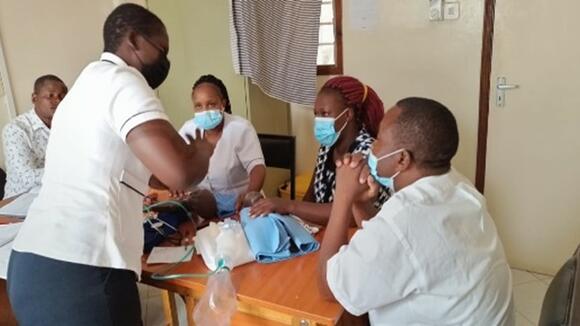 From: LSTMEmergency Obstetric and Newborn Care (EmONC) mentorship in Garissa County, Kenya: enablers and barriers to effective facility-based mentorshipBlog16 Dec 2022
From: LSTMEmergency Obstetric and Newborn Care (EmONC) mentorship in Garissa County, Kenya: enablers and barriers to effective facility-based mentorshipBlog16 Dec 2022 -
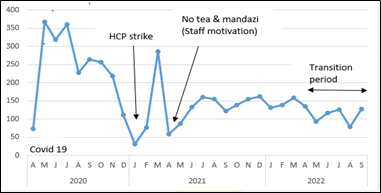 From: LSTMRecognition of Excellence in Contributing to Improved Quality of Care for Women and Newborns in Vihiga County, KenyaBlog12 Dec 2022
From: LSTMRecognition of Excellence in Contributing to Improved Quality of Care for Women and Newborns in Vihiga County, KenyaBlog12 Dec 2022 -
 From: LSTMSustainable investments for high quality pre-service midwifery education through midwifery faculty development interventions in KenyaBlog12 Dec 2022
From: LSTMSustainable investments for high quality pre-service midwifery education through midwifery faculty development interventions in KenyaBlog12 Dec 2022 -
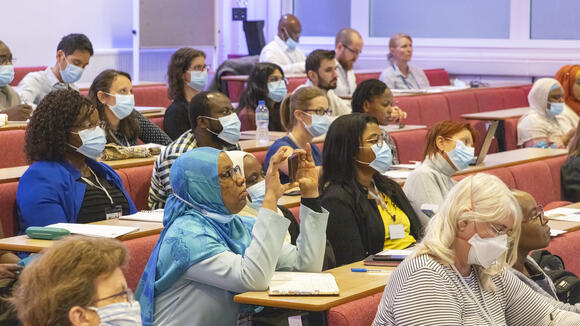 From: LSTMEmergency Obstetric and Quality of Care Unit at LSTM hosts its first annual international Knowledge Management and Learning (KML) eventBlog9 Nov 2022
From: LSTMEmergency Obstetric and Quality of Care Unit at LSTM hosts its first annual international Knowledge Management and Learning (KML) eventBlog9 Nov 2022 -
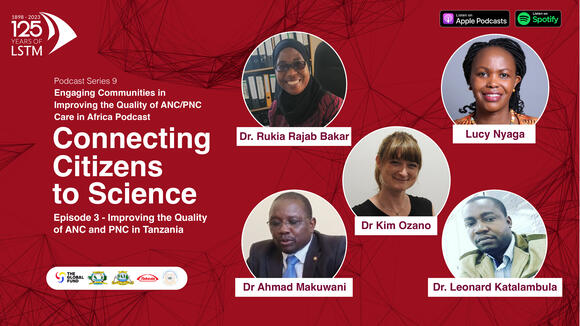 From: LSTMS9E3 - Improving the Quality of ANC and PNC in TanzaniaMedia13 Oct 2022
From: LSTMS9E3 - Improving the Quality of ANC and PNC in TanzaniaMedia13 Oct 2022 -
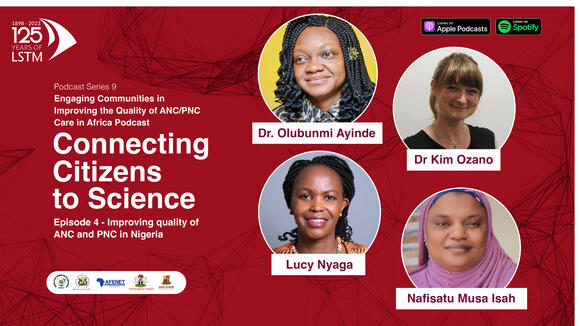 From: LSTMS9E4 - Improving quality of ANC and PNC in NigeriaMedia7 Oct 2022
From: LSTMS9E4 - Improving quality of ANC and PNC in NigeriaMedia7 Oct 2022 -
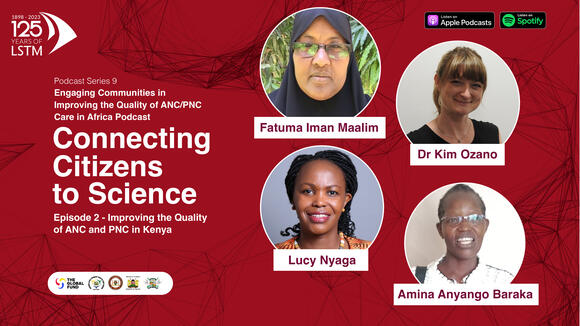 From: LSTMS9E2 - Improving the Quality of ANC and PNC in KenyaMedia23 Sep 2022
From: LSTMS9E2 - Improving the Quality of ANC and PNC in KenyaMedia23 Sep 2022 -
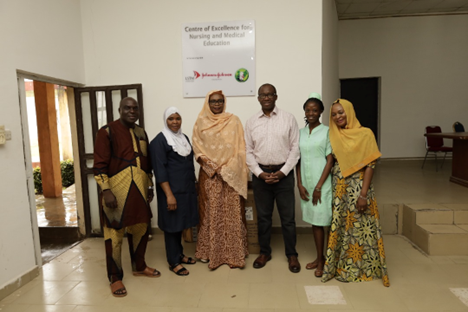 From: LSTMSustaining EmONC training through the Centre of Excellence for Midwifery and Medical Education in NigeriaBlog22 Sep 2022
From: LSTMSustaining EmONC training through the Centre of Excellence for Midwifery and Medical Education in NigeriaBlog22 Sep 2022 -
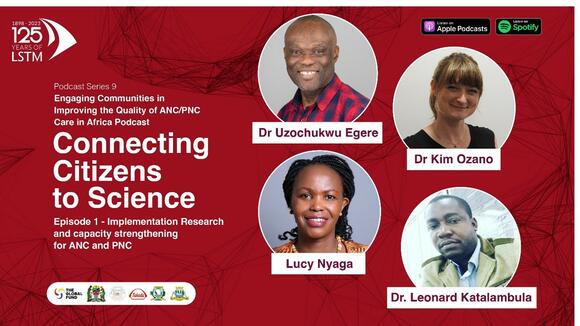 From: LSTMLaunch of the Engaging Communities in Improving the Quality of ANC/PNC in Africa PodcastBlog13 Sep 2022
From: LSTMLaunch of the Engaging Communities in Improving the Quality of ANC/PNC in Africa PodcastBlog13 Sep 2022 -
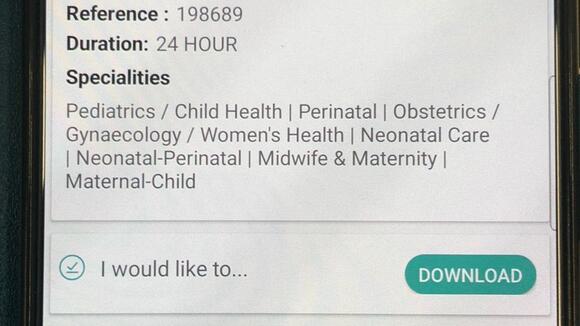 From: LSTMNew blended learning package launched to improve quality in ANC and PNCNews article13 Sep 2022
From: LSTMNew blended learning package launched to improve quality in ANC and PNCNews article13 Sep 2022 -
From: LSTMAntenatal Care (ANC) and Postnatal Care (PNC) blended learning Continuous Professional Development course (CPD) for Skilled Health PersonnelBlog12 Sep 2022
-
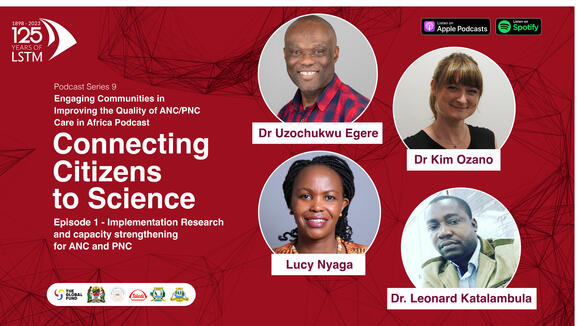 From: LSTMS9E1 - Implementation Research and capacity strengthening for ANC and PNCMedia12 Sep 2022
From: LSTMS9E1 - Implementation Research and capacity strengthening for ANC and PNCMedia12 Sep 2022 -
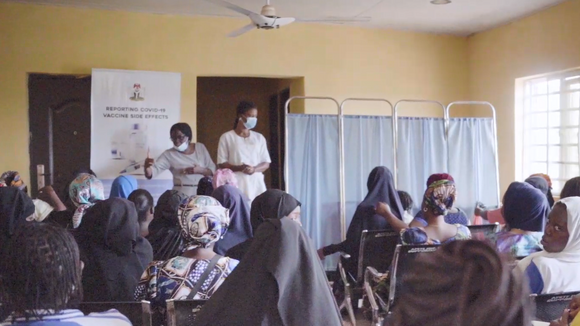 From: LSTMQuality Improvement of Integrated HIV, TB and Malaria services in Antenatal care (ANC) and Postnatal care (PNC) in Oyo state, Nigeria – An Impact StoryBlog31 Aug 2022
From: LSTMQuality Improvement of Integrated HIV, TB and Malaria services in Antenatal care (ANC) and Postnatal care (PNC) in Oyo state, Nigeria – An Impact StoryBlog31 Aug 2022 -
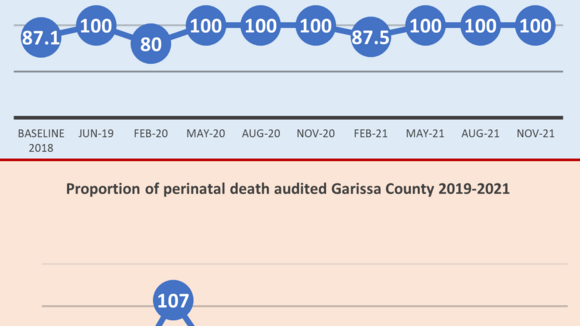 From: LSTMImproving Maternal and Newborn Health through Maternal Death Surveillance and Response in Garissa County Kenya: Actions, Challenges and Next stepsBlog22 Aug 2022
From: LSTMImproving Maternal and Newborn Health through Maternal Death Surveillance and Response in Garissa County Kenya: Actions, Challenges and Next stepsBlog22 Aug 2022 -
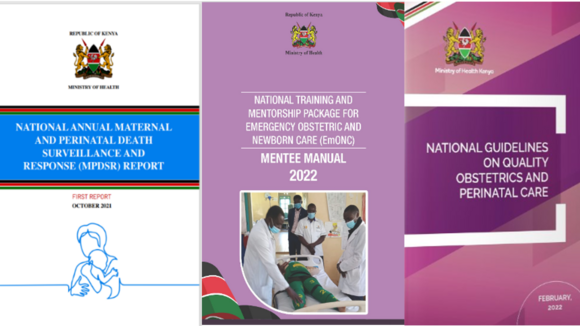 From: LSTMReducing Preventable Maternal and Newborn Deaths: Institutionalizing Maternal and Perinatal Death Surveillance and Response (MPDSR) and Quality Obstetric and Perinatal Care in KenyaBlog5 Aug 2022
From: LSTMReducing Preventable Maternal and Newborn Deaths: Institutionalizing Maternal and Perinatal Death Surveillance and Response (MPDSR) and Quality Obstetric and Perinatal Care in KenyaBlog5 Aug 2022 -
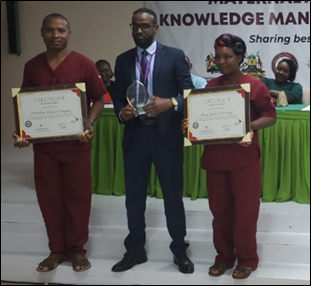 From: LSTMCelebrating leadership, Celebrating EmONC mentorship in Garissa County, KenyaBlog3 Aug 2022
From: LSTMCelebrating leadership, Celebrating EmONC mentorship in Garissa County, KenyaBlog3 Aug 2022 -
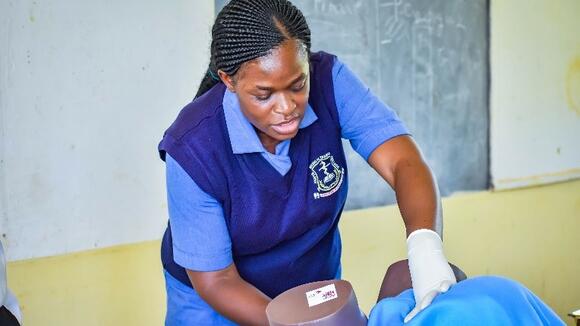 From: LSTMStrengthening the capacity of midwifery educators through national accredited continuous professional development programme: a focus on sustainable change in pre-service educationBlog7 Jul 2022
From: LSTMStrengthening the capacity of midwifery educators through national accredited continuous professional development programme: a focus on sustainable change in pre-service educationBlog7 Jul 2022 -
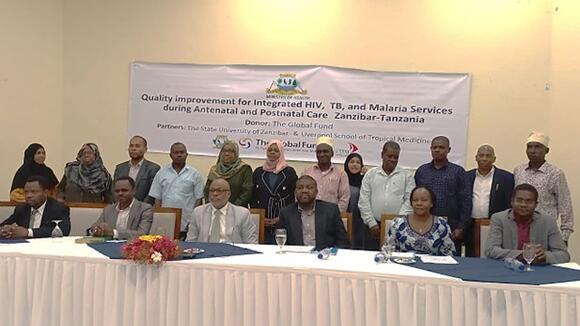 From: LSTMReducing Preventable Maternal and Newborn Deaths - Improving Quality of Maternal and Newborn Health: Strengthened integration of HIV, TB and Malaria services in ANC and PNC, ZanzibarBlog28 Jun 2022
From: LSTMReducing Preventable Maternal and Newborn Deaths - Improving Quality of Maternal and Newborn Health: Strengthened integration of HIV, TB and Malaria services in ANC and PNC, ZanzibarBlog28 Jun 2022 -
 From: LSTMImproving Quality of Maternal and Newborn Care in Tanzania - Strengthened Integration of HIV, TB and Malaria Services in ANC and PNCBlog19 May 2022
From: LSTMImproving Quality of Maternal and Newborn Care in Tanzania - Strengthened Integration of HIV, TB and Malaria Services in ANC and PNCBlog19 May 2022 -
 From: LSTMOur new Midwifery Educator CPD programmeNews article5 May 2022
From: LSTMOur new Midwifery Educator CPD programmeNews article5 May 2022 -
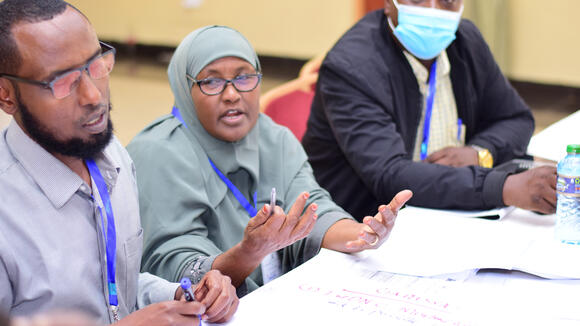 From: LSTMSharing Knowledge and Experiences to Advance Maternal and Newborn HealthBlog5 May 2022
From: LSTMSharing Knowledge and Experiences to Advance Maternal and Newborn HealthBlog5 May 2022 -
 From: LSTMInternational Day of the Midwife 2022News article4 May 2022
From: LSTMInternational Day of the Midwife 2022News article4 May 2022 -
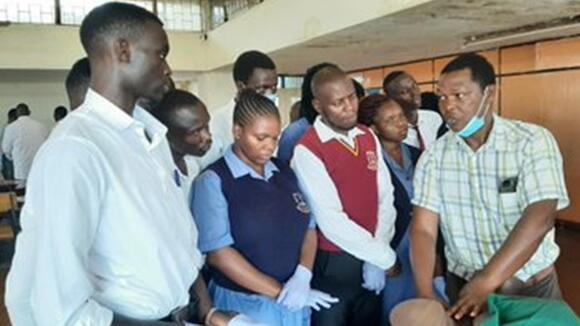 From: LSTMInvestments in pre-service midwifery education and training curriculum in Kenya: What has worked?Blog19 Apr 2022
From: LSTMInvestments in pre-service midwifery education and training curriculum in Kenya: What has worked?Blog19 Apr 2022 -
From: LSTMEvery Baby Counts, a story of hopeBlog12 Apr 2022
-
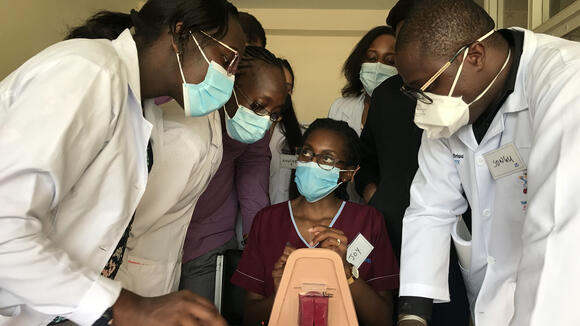 From: LSTM“Pass it on”: Sustainable capacity strengthening to improve the quality of obstetric care in KenyaBlog11 Apr 2022
From: LSTM“Pass it on”: Sustainable capacity strengthening to improve the quality of obstetric care in KenyaBlog11 Apr 2022 -
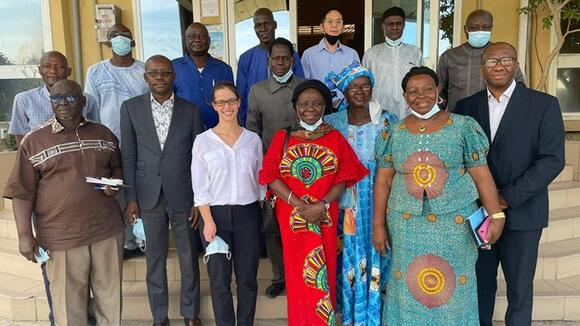 From: LSTMLSTM delegation meet with in-country partners and national ministries of health in Chad & Togo – December 2021Blog17 Mar 2022
From: LSTMLSTM delegation meet with in-country partners and national ministries of health in Chad & Togo – December 2021Blog17 Mar 2022 -
 From: LSTMUNFPA launches new series of e-learning resources on key life saving skills with LSTM inputNews article9 Feb 2022
From: LSTMUNFPA launches new series of e-learning resources on key life saving skills with LSTM inputNews article9 Feb 2022 -
 From: LSTMLSTM Mission to Tanzania 8th – 11th November, 2021Blog7 Feb 2022
From: LSTMLSTM Mission to Tanzania 8th – 11th November, 2021Blog7 Feb 2022 -
 From: LSTMEffective partnerships to improve the quality of birth during childbirth in NigeriaBlog16 Jun 2021
From: LSTMEffective partnerships to improve the quality of birth during childbirth in NigeriaBlog16 Jun 2021 -
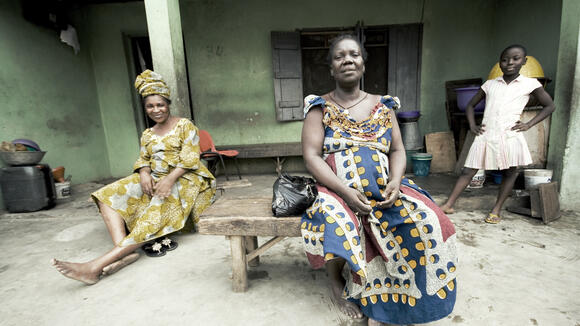 From: LSTMImplementation and Evaluation of Obstetric Early Warning Systems in tertiary care hospitals in NigeriaBlog11 Jun 2021
From: LSTMImplementation and Evaluation of Obstetric Early Warning Systems in tertiary care hospitals in NigeriaBlog11 Jun 2021 -
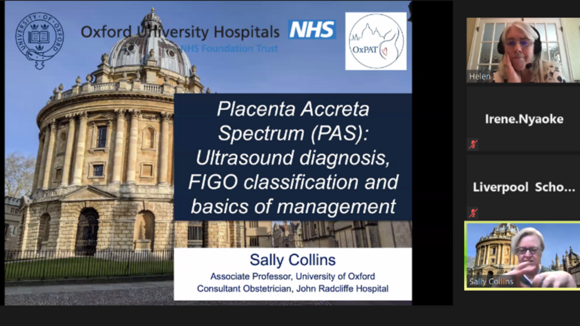 From: LSTMReducing the risk of placenta accreta spectrum (PAS) disorder in KenyaBlog11 Jun 2021
From: LSTMReducing the risk of placenta accreta spectrum (PAS) disorder in KenyaBlog11 Jun 2021 -
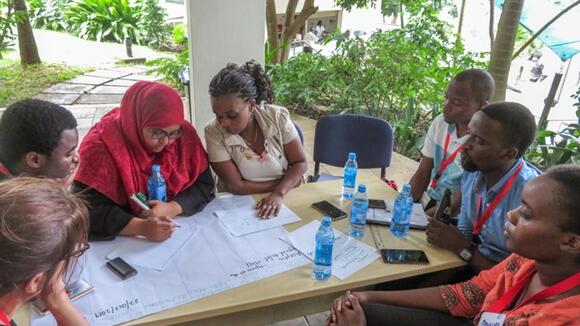 From: LSTMTranslating learning into improved quality of obstetric careBlog11 Jun 2021
From: LSTMTranslating learning into improved quality of obstetric careBlog11 Jun 2021 -
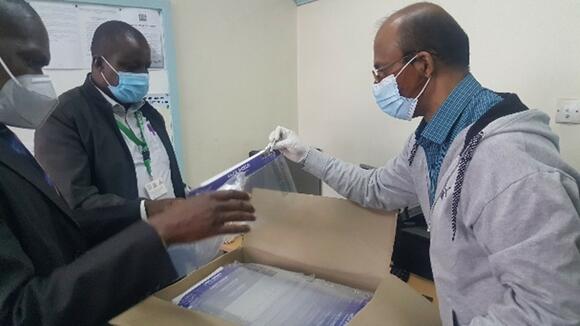 From: LSTM#Quality Assurance for PPEsBlog19 May 2021
From: LSTM#Quality Assurance for PPEsBlog19 May 2021 -
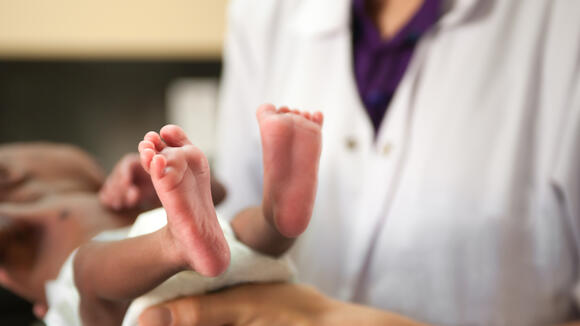 From: LSTMLSTM partners the World Continuing Education Alliance to provide ongoing development for health workers providing maternal and newborn health care.News article19 May 2021
From: LSTMLSTM partners the World Continuing Education Alliance to provide ongoing development for health workers providing maternal and newborn health care.News article19 May 2021 -
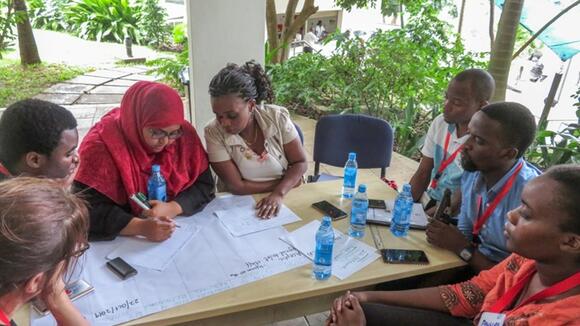 From: LSTMTranslating learning into improved quality of obstetric careBlog18 May 2021
From: LSTMTranslating learning into improved quality of obstetric careBlog18 May 2021 -
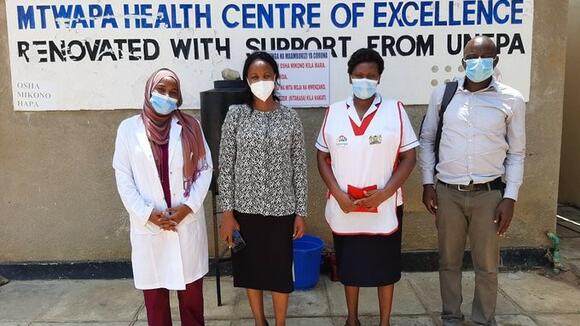 From: LSTMCOVID-19: Protecting frontline healthcare workers is critical for maintaining essential health servicesBlog12 May 2021
From: LSTMCOVID-19: Protecting frontline healthcare workers is critical for maintaining essential health servicesBlog12 May 2021 -
 From: LSTMSuccessful completion of phase 1 of an implementation programme to Improve quality of antenatal and postnatal services in NigeriaNews article16 Feb 2021
From: LSTMSuccessful completion of phase 1 of an implementation programme to Improve quality of antenatal and postnatal services in NigeriaNews article16 Feb 2021 -
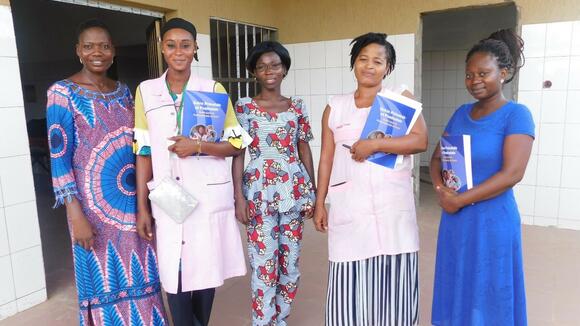 From: LSTMSuccessful completion of implementation programme in Togo during the COVID-19 pandemicNews article8 Feb 2021
From: LSTMSuccessful completion of implementation programme in Togo during the COVID-19 pandemicNews article8 Feb 2021 -
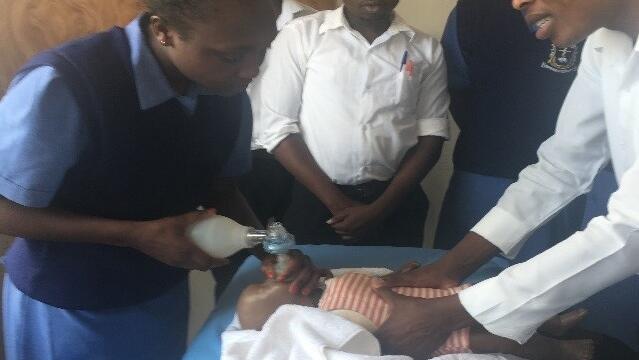 From: LSTMIntegrating Emergency Obstetrics And Newborn Care (Emonc) In Clinical Officers’ Reproductive Health Pre-Service Curricula Is Essential To Achieving Maternal And Newborn Health TargetsBlog14 Aug 2020
From: LSTMIntegrating Emergency Obstetrics And Newborn Care (Emonc) In Clinical Officers’ Reproductive Health Pre-Service Curricula Is Essential To Achieving Maternal And Newborn Health TargetsBlog14 Aug 2020 -
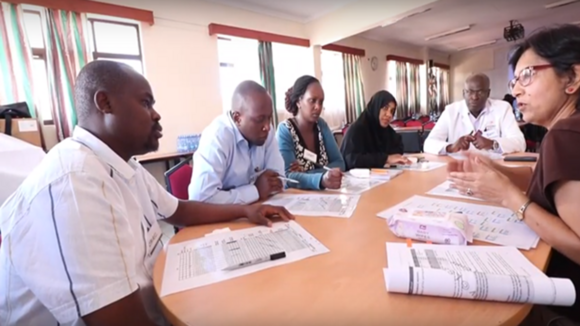 From: LSTMImproved training is critical to improve access to safe caesareans in low resource settingsBlog12 Mar 2020
From: LSTMImproved training is critical to improve access to safe caesareans in low resource settingsBlog12 Mar 2020 -
 From: LSTMStandardized midwifery training is essential to achieving maternal and newborn health targetsBlog4 Mar 2020
From: LSTMStandardized midwifery training is essential to achieving maternal and newborn health targetsBlog4 Mar 2020 -
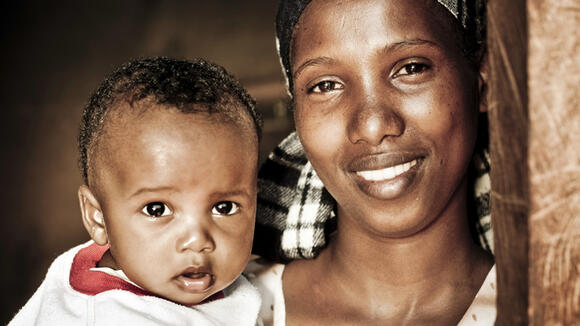 From: LSTMReducing Intrapartum Stillbirth: Could Standards-Based Audit Hold the Secret to Successful Improvement in Quality of Care?Blog3 Mar 2020
From: LSTMReducing Intrapartum Stillbirth: Could Standards-Based Audit Hold the Secret to Successful Improvement in Quality of Care?Blog3 Mar 2020 -
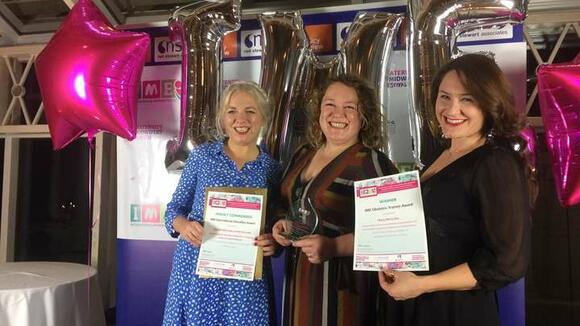 From: LSTMLSTM wins awards at International Maternity ExpoNews article13 Nov 2019
From: LSTMLSTM wins awards at International Maternity ExpoNews article13 Nov 2019 -
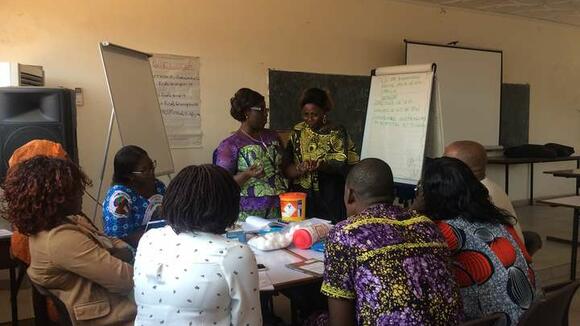 From: LSTMRefresher training in Antenatal and Postnatal Care delivered in TogoNews article4 Oct 2019
From: LSTMRefresher training in Antenatal and Postnatal Care delivered in TogoNews article4 Oct 2019 -
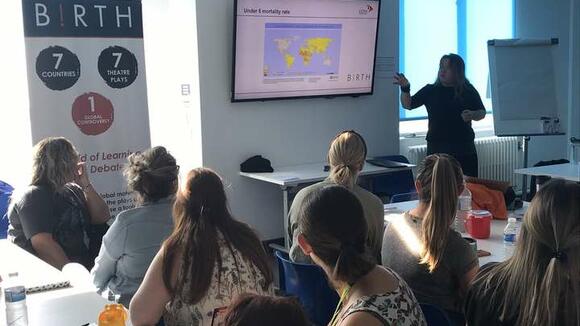 From: LSTM“It didn’t make me think, it made me feel.” LSTM’s Hannah McCauley and Kirsty Lowe lead interactive session about fistula with LJMU Midwifery studentsNews article9 Sep 2019
From: LSTM“It didn’t make me think, it made me feel.” LSTM’s Hannah McCauley and Kirsty Lowe lead interactive session about fistula with LJMU Midwifery studentsNews article9 Sep 2019 -
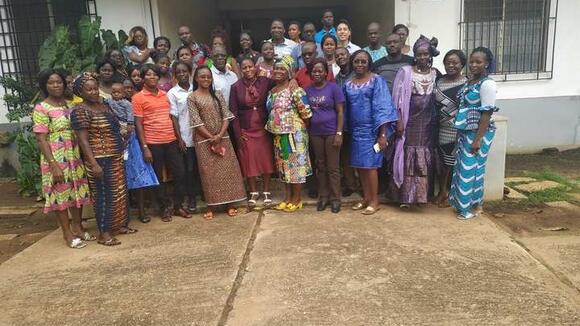 From: LSTMImproving quality of care and measuring efficacy: Two weeks of training with healthcare providers in TogoNews article22 Aug 2019
From: LSTMImproving quality of care and measuring efficacy: Two weeks of training with healthcare providers in TogoNews article22 Aug 2019 -
 From: LSTMRealising the sexual and reproductive rights of every woman, everywhere and the essential role that midwives playBlog3 May 2019
From: LSTMRealising the sexual and reproductive rights of every woman, everywhere and the essential role that midwives playBlog3 May 2019 -
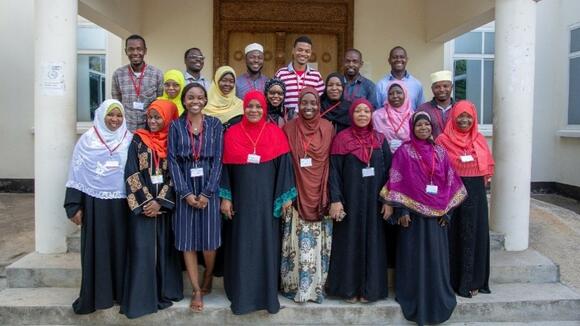 From: LSTMLSTM delivers new intrapartum care course in ZanzibarNews article11 Apr 2019
From: LSTMLSTM delivers new intrapartum care course in ZanzibarNews article11 Apr 2019 -
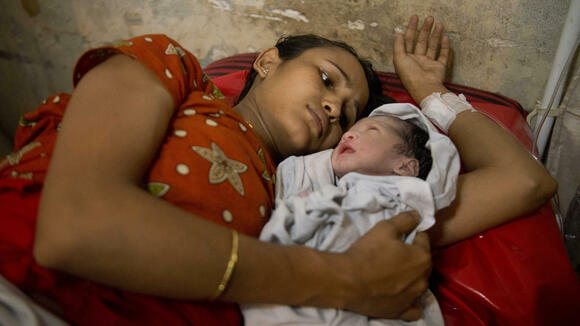 From: LSTMWhat interventions are available to women who experience domestic violence during and after pregnancy in LMIC?Blog10 Dec 2018
From: LSTMWhat interventions are available to women who experience domestic violence during and after pregnancy in LMIC?Blog10 Dec 2018 -
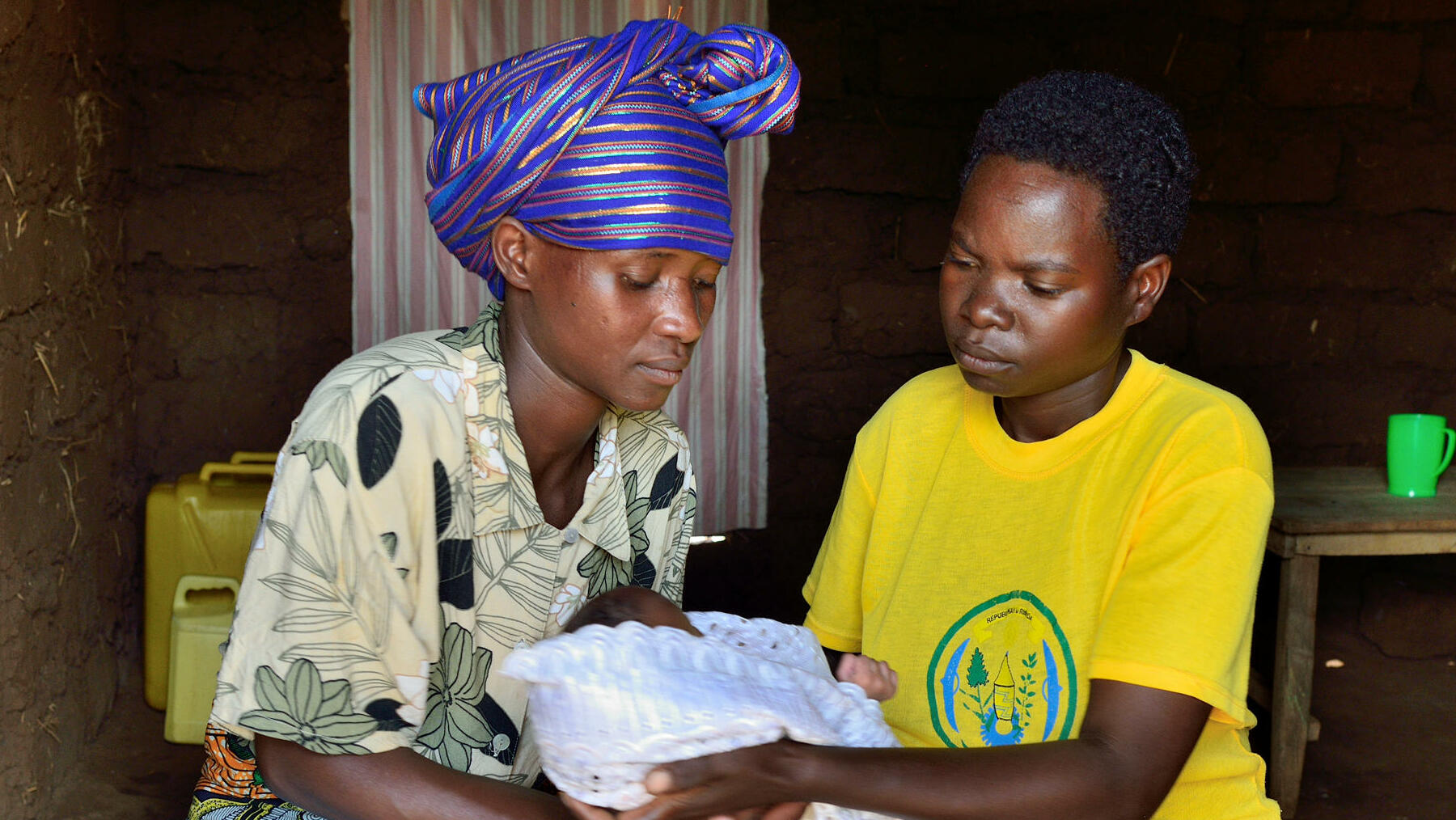 From: LSTMMidwives and nurse-midwives delivering emergency obstetric careBlog4 May 2018
From: LSTMMidwives and nurse-midwives delivering emergency obstetric careBlog4 May 2018 -
 From: LSTMLSTM embarks on new programme in TogoBlog1 Jan 2018
From: LSTMLSTM embarks on new programme in TogoBlog1 Jan 2018 -
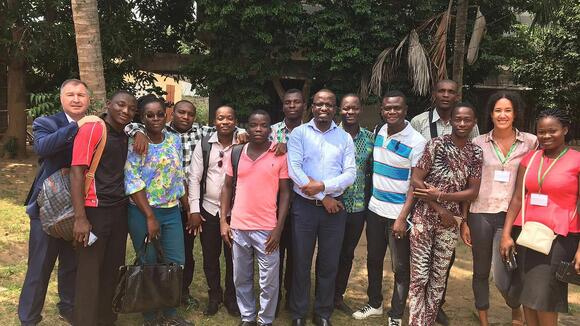 From: LSTMData Collection during political protest: Lomé, TogoBlog1 Jan 2018
From: LSTMData Collection during political protest: Lomé, TogoBlog1 Jan 2018
-
 From: LSTMFive Years of Transformational Partnership: Capacity Strengthening Across Kenya, Nigeria, and TanzaniaNews article22 May 2025
From: LSTMFive Years of Transformational Partnership: Capacity Strengthening Across Kenya, Nigeria, and TanzaniaNews article22 May 2025 -
 From: LSTMEnhancing Maternal and Newborn Health: Impact of Quality Improvement and Blended Learning InitiativesNews article31 Jan 2025
From: LSTMEnhancing Maternal and Newborn Health: Impact of Quality Improvement and Blended Learning InitiativesNews article31 Jan 2025 -
 From: LSTMFinal Phase of Advanced Obstetrics Training in Nigeria launchedNews article9 Dec 2024
From: LSTMFinal Phase of Advanced Obstetrics Training in Nigeria launchedNews article9 Dec 2024 -
 From: LSTMInnovative Ways to Improve Quality of Antenatal and Postnatal Care (ANC-PNC) Services: Garissa County experience, KenyaBlog13 Aug 2024
From: LSTMInnovative Ways to Improve Quality of Antenatal and Postnatal Care (ANC-PNC) Services: Garissa County experience, KenyaBlog13 Aug 2024 -
 From: LSTMCapacity Building of Healthcare Workers In Integrated HIV, TB and Malaria in ANC and PNC: Face-To-Face ANC/PNC Training in Vihiga and Uasin Gishu Counties, KenyaBlog7 Aug 2024
From: LSTMCapacity Building of Healthcare Workers In Integrated HIV, TB and Malaria in ANC and PNC: Face-To-Face ANC/PNC Training in Vihiga and Uasin Gishu Counties, KenyaBlog7 Aug 2024 -
 From: LSTMCreating A Culture of Quality: Standard-Based Audits for Improved Antenatal and Postnatal Care ServicesNews article6 Aug 2024
From: LSTMCreating A Culture of Quality: Standard-Based Audits for Improved Antenatal and Postnatal Care ServicesNews article6 Aug 2024 -
 From: LSTMEssential Medical Tools Are Saving the Lives of Mothers and Transforming Maternal and Child Health in Dodoma, TanzaniaNews article18 Jun 2024
From: LSTMEssential Medical Tools Are Saving the Lives of Mothers and Transforming Maternal and Child Health in Dodoma, TanzaniaNews article18 Jun 2024 -
 From: LSTMThird Batch of Advanced Obstetrics and Surgical Skills Training for NPMCN Examiners in Abuja, NigeriaNews article12 Jun 2024
From: LSTMThird Batch of Advanced Obstetrics and Surgical Skills Training for NPMCN Examiners in Abuja, NigeriaNews article12 Jun 2024 -
 From: LSTMUse of the Blended Learning Approach in Antenatal and Postnatal Care Training for Frontline Healthcare Workers – The Garissa County (Kenya) ExperienceBlog4 Jun 2024
From: LSTMUse of the Blended Learning Approach in Antenatal and Postnatal Care Training for Frontline Healthcare Workers – The Garissa County (Kenya) ExperienceBlog4 Jun 2024 -
 From: LSTMLiverpool School of Tropical Medicine and Wellbeing Foundation Africa Begin Second Batch of Advanced Training for NPMCN Examiners in NigeriaNews article3 Jun 2024
From: LSTMLiverpool School of Tropical Medicine and Wellbeing Foundation Africa Begin Second Batch of Advanced Training for NPMCN Examiners in NigeriaNews article3 Jun 2024 -
 From: LSTMLiverpool School of Tropical Medicine and Wellbeing Foundation Africa launch Advanced Training for Resident Doctors in NigeriaNews article9 May 2024
From: LSTMLiverpool School of Tropical Medicine and Wellbeing Foundation Africa launch Advanced Training for Resident Doctors in NigeriaNews article9 May 2024 -
 From: LSTMMidwives at the Forefront of the Fight Against Climate Change: The Case of Ijara Sub County Hospital, GarissaBlog3 May 2024
From: LSTMMidwives at the Forefront of the Fight Against Climate Change: The Case of Ijara Sub County Hospital, GarissaBlog3 May 2024 -
 From: LSTM'Kumbe, Yuko Sawa (… By the way, s/he is fine)' - Access to Essential Medical Equipment: An Indispensable Aspect of Quality Patient Care (Uasin Gishu County, Kenya)Blog30 Apr 2024
From: LSTM'Kumbe, Yuko Sawa (… By the way, s/he is fine)' - Access to Essential Medical Equipment: An Indispensable Aspect of Quality Patient Care (Uasin Gishu County, Kenya)Blog30 Apr 2024 -
 From: LSTM‘WE DID IT!’: Hulugho sub-county hospital team in Kenya improves the physical environment for antenatal and postnatal mothersBlog4 Mar 2024
From: LSTM‘WE DID IT!’: Hulugho sub-county hospital team in Kenya improves the physical environment for antenatal and postnatal mothersBlog4 Mar 2024 -
From: LSTMUsing Standards-Based Audit for improved quality of MNH Care: Enhanced screening for Anaemia in ANC at Esiarambatsi Health Centre, Vihiga CountyBlog4 Mar 2024
-
 From: LSTMStrengthening health systems capacity for improved Maternal and Newborn health outcomes: EmONC training and mentorship for frontline healthcare providers in Nairobi -KenyaBlog2 Feb 2024
From: LSTMStrengthening health systems capacity for improved Maternal and Newborn health outcomes: EmONC training and mentorship for frontline healthcare providers in Nairobi -KenyaBlog2 Feb 2024 -
 From: LSTMStrengthening pre-service midwifery education: evidence to inform policy and practice for impactBlog17 Jan 2024
From: LSTMStrengthening pre-service midwifery education: evidence to inform policy and practice for impactBlog17 Jan 2024 -
 From: LSTMAnnual dissemination meeting for quality improvement of integrated HIV, Tuberculosis and Malaria services during antenatal and postnatal care in TogoBlog8 Jan 2024
From: LSTMAnnual dissemination meeting for quality improvement of integrated HIV, Tuberculosis and Malaria services during antenatal and postnatal care in TogoBlog8 Jan 2024 -
 From: LSTMMaternal and Newborn Health Care: Investing in skilled healthcare workers for Integrated HIV/AIDS care services in Antenatal and Postnatal clinicsBlog4 Dec 2023
From: LSTMMaternal and Newborn Health Care: Investing in skilled healthcare workers for Integrated HIV/AIDS care services in Antenatal and Postnatal clinicsBlog4 Dec 2023 -
 From: LSTMInternational Day for the Elimination of Violence Against WomenBlog25 Nov 2023
From: LSTMInternational Day for the Elimination of Violence Against WomenBlog25 Nov 2023 -
 From: LSTMMaternal and Newborn Continuum of Care: Cross-Country learning on capacity strengthening in midwifery pre-service education and improved quality of integrated HIV, TB and Malaria in ANC and PNCBlog1 Nov 2023
From: LSTMMaternal and Newborn Continuum of Care: Cross-Country learning on capacity strengthening in midwifery pre-service education and improved quality of integrated HIV, TB and Malaria in ANC and PNCBlog1 Nov 2023 -
 From: LSTMBreaking Down Language Barriers: Translating ANC and PNC Blended Learning Course for Improved Quality of Care in ANC and PNC in TanzaniaBlog31 Oct 2023
From: LSTMBreaking Down Language Barriers: Translating ANC and PNC Blended Learning Course for Improved Quality of Care in ANC and PNC in TanzaniaBlog31 Oct 2023 -
 From: LSTMStrengthened health information system to improve the care of every woman and new-born: Use of standardised medical records in Iftin Sub-County Hospital, Garissa CountyBlog28 Sep 2023
From: LSTMStrengthened health information system to improve the care of every woman and new-born: Use of standardised medical records in Iftin Sub-County Hospital, Garissa CountyBlog28 Sep 2023 -
 From: LSTMEight and more antenatal care contacts in pregnancy, is it feasible?Blog27 Sep 2023
From: LSTMEight and more antenatal care contacts in pregnancy, is it feasible?Blog27 Sep 2023 -
 From: LSTMQuality Improvement for Better Maternal and Newborn Outcomes: Implementation of a Standards-Based Audit at Vihiga County Referral HospitalBlog2 Aug 2023
From: LSTMQuality Improvement for Better Maternal and Newborn Outcomes: Implementation of a Standards-Based Audit at Vihiga County Referral HospitalBlog2 Aug 2023 -
From: LSTMImproving maternal and newborn healthcare access in humanitarian settings: Is it Time to Rethink Our Strategy?Blog5 Jul 2023
-
 From: LSTMFor the good of the African Child: making sense of the digital revolutionBlog16 Jun 2023
From: LSTMFor the good of the African Child: making sense of the digital revolutionBlog16 Jun 2023 -
 From: LSTMStrengthening Maternal and Newborn Health Quality of Care: the case of Quality ‘Champions’ of Uasin Gishu County, KenyaBlog13 Jun 2023
From: LSTMStrengthening Maternal and Newborn Health Quality of Care: the case of Quality ‘Champions’ of Uasin Gishu County, KenyaBlog13 Jun 2023 -
 From: LSTMInstitutionalization of Maternal and Perinatal Death Surveillance and Response (MPDSR): Lessons from the Maternal and Newborn Health (MNH) Programme in Kenya (2016-2023)Blog7 Jun 2023
From: LSTMInstitutionalization of Maternal and Perinatal Death Surveillance and Response (MPDSR): Lessons from the Maternal and Newborn Health (MNH) Programme in Kenya (2016-2023)Blog7 Jun 2023 -
From: LSTMFrom Activity to Policy and Practice: Emergency Obstetric and Neonatal Care mentorship for healthcare providers in KenyaBlog16 May 2023
-
 From: LSTMInternational Day of the Midwife 2023News article5 May 2023
From: LSTMInternational Day of the Midwife 2023News article5 May 2023 -
 From: LSTMINTERNATIONAL DAY OF THE MIDWIFE: Midwifery - A pathway to accelerating positive trends in maternal and newborn mortality and achieving universal health coverage in KenyaBlog5 May 2023
From: LSTMINTERNATIONAL DAY OF THE MIDWIFE: Midwifery - A pathway to accelerating positive trends in maternal and newborn mortality and achieving universal health coverage in KenyaBlog5 May 2023 -
From: LSTMWorld Malaria Day 2023 - LSTM Malaria in Pregnancy - the work of the team in LSTM NigeriaBlog24 Apr 2023
-
From: LSTMWORLD MALARIA DAY 2023Blog24 Apr 2023
-
From: LSTMUnfinished business: More investments are needed to strengthen pre-service nursing and midwifery education and training after the FCDO funded programme in KenyaBlog24 Apr 2023
-
From: LSTMInnovation in learning to improve quality of care in maternal and newborn healthBlog21 Apr 2023
-
 From: LSTMQuality Improvement In Integrated HIV, Tb and Malaria Services In Antenatal and Postnatal Care Project Nigeria: Knowledge Management and Learning EventBlog28 Feb 2023
From: LSTMQuality Improvement In Integrated HIV, Tb and Malaria Services In Antenatal and Postnatal Care Project Nigeria: Knowledge Management and Learning EventBlog28 Feb 2023 -
 From: LSTMAdvanced Comprehensive Obstetric, Surgical and Anaesthetic skills Course: University of Nairobi and Liverpool School of Tropical MedicineBlog2 Feb 2023
From: LSTMAdvanced Comprehensive Obstetric, Surgical and Anaesthetic skills Course: University of Nairobi and Liverpool School of Tropical MedicineBlog2 Feb 2023 -
 From: LSTMScale up of essential interventions can improve maternal and new-born health (MNH): Provision of basic MNH equipment for improved MNH Quality of Care in KenyaBlog19 Dec 2022
From: LSTMScale up of essential interventions can improve maternal and new-born health (MNH): Provision of basic MNH equipment for improved MNH Quality of Care in KenyaBlog19 Dec 2022 -
 From: LSTMEmergency Obstetric and Newborn Care (EmONC) mentorship in Garissa County, Kenya: enablers and barriers to effective facility-based mentorshipBlog16 Dec 2022
From: LSTMEmergency Obstetric and Newborn Care (EmONC) mentorship in Garissa County, Kenya: enablers and barriers to effective facility-based mentorshipBlog16 Dec 2022 -
 From: LSTMRecognition of Excellence in Contributing to Improved Quality of Care for Women and Newborns in Vihiga County, KenyaBlog12 Dec 2022
From: LSTMRecognition of Excellence in Contributing to Improved Quality of Care for Women and Newborns in Vihiga County, KenyaBlog12 Dec 2022 -
 From: LSTMSustainable investments for high quality pre-service midwifery education through midwifery faculty development interventions in KenyaBlog12 Dec 2022
From: LSTMSustainable investments for high quality pre-service midwifery education through midwifery faculty development interventions in KenyaBlog12 Dec 2022 -
 From: LSTMEmergency Obstetric and Quality of Care Unit at LSTM hosts its first annual international Knowledge Management and Learning (KML) eventBlog9 Nov 2022
From: LSTMEmergency Obstetric and Quality of Care Unit at LSTM hosts its first annual international Knowledge Management and Learning (KML) eventBlog9 Nov 2022 -
 From: LSTMS9E3 - Improving the Quality of ANC and PNC in TanzaniaMedia13 Oct 2022
From: LSTMS9E3 - Improving the Quality of ANC and PNC in TanzaniaMedia13 Oct 2022 -
 From: LSTMS9E4 - Improving quality of ANC and PNC in NigeriaMedia7 Oct 2022
From: LSTMS9E4 - Improving quality of ANC and PNC in NigeriaMedia7 Oct 2022 -
 From: LSTMS9E2 - Improving the Quality of ANC and PNC in KenyaMedia23 Sep 2022
From: LSTMS9E2 - Improving the Quality of ANC and PNC in KenyaMedia23 Sep 2022 -
 From: LSTMSustaining EmONC training through the Centre of Excellence for Midwifery and Medical Education in NigeriaBlog22 Sep 2022
From: LSTMSustaining EmONC training through the Centre of Excellence for Midwifery and Medical Education in NigeriaBlog22 Sep 2022 -
 From: LSTMLaunch of the Engaging Communities in Improving the Quality of ANC/PNC in Africa PodcastBlog13 Sep 2022
From: LSTMLaunch of the Engaging Communities in Improving the Quality of ANC/PNC in Africa PodcastBlog13 Sep 2022 -
 From: LSTMNew blended learning package launched to improve quality in ANC and PNCNews article13 Sep 2022
From: LSTMNew blended learning package launched to improve quality in ANC and PNCNews article13 Sep 2022 -
From: LSTMAntenatal Care (ANC) and Postnatal Care (PNC) blended learning Continuous Professional Development course (CPD) for Skilled Health PersonnelBlog12 Sep 2022
-
 From: LSTMS9E1 - Implementation Research and capacity strengthening for ANC and PNCMedia12 Sep 2022
From: LSTMS9E1 - Implementation Research and capacity strengthening for ANC and PNCMedia12 Sep 2022 -
 From: LSTMQuality Improvement of Integrated HIV, TB and Malaria services in Antenatal care (ANC) and Postnatal care (PNC) in Oyo state, Nigeria – An Impact StoryBlog31 Aug 2022
From: LSTMQuality Improvement of Integrated HIV, TB and Malaria services in Antenatal care (ANC) and Postnatal care (PNC) in Oyo state, Nigeria – An Impact StoryBlog31 Aug 2022 -
 From: LSTMImproving Maternal and Newborn Health through Maternal Death Surveillance and Response in Garissa County Kenya: Actions, Challenges and Next stepsBlog22 Aug 2022
From: LSTMImproving Maternal and Newborn Health through Maternal Death Surveillance and Response in Garissa County Kenya: Actions, Challenges and Next stepsBlog22 Aug 2022 -
 From: LSTMReducing Preventable Maternal and Newborn Deaths: Institutionalizing Maternal and Perinatal Death Surveillance and Response (MPDSR) and Quality Obstetric and Perinatal Care in KenyaBlog5 Aug 2022
From: LSTMReducing Preventable Maternal and Newborn Deaths: Institutionalizing Maternal and Perinatal Death Surveillance and Response (MPDSR) and Quality Obstetric and Perinatal Care in KenyaBlog5 Aug 2022 -
 From: LSTMCelebrating leadership, Celebrating EmONC mentorship in Garissa County, KenyaBlog3 Aug 2022
From: LSTMCelebrating leadership, Celebrating EmONC mentorship in Garissa County, KenyaBlog3 Aug 2022 -
 From: LSTMStrengthening the capacity of midwifery educators through national accredited continuous professional development programme: a focus on sustainable change in pre-service educationBlog7 Jul 2022
From: LSTMStrengthening the capacity of midwifery educators through national accredited continuous professional development programme: a focus on sustainable change in pre-service educationBlog7 Jul 2022 -
 From: LSTMReducing Preventable Maternal and Newborn Deaths - Improving Quality of Maternal and Newborn Health: Strengthened integration of HIV, TB and Malaria services in ANC and PNC, ZanzibarBlog28 Jun 2022
From: LSTMReducing Preventable Maternal and Newborn Deaths - Improving Quality of Maternal and Newborn Health: Strengthened integration of HIV, TB and Malaria services in ANC and PNC, ZanzibarBlog28 Jun 2022 -
 From: LSTMImproving Quality of Maternal and Newborn Care in Tanzania - Strengthened Integration of HIV, TB and Malaria Services in ANC and PNCBlog19 May 2022
From: LSTMImproving Quality of Maternal and Newborn Care in Tanzania - Strengthened Integration of HIV, TB and Malaria Services in ANC and PNCBlog19 May 2022 -
 From: LSTMOur new Midwifery Educator CPD programmeNews article5 May 2022
From: LSTMOur new Midwifery Educator CPD programmeNews article5 May 2022 -
 From: LSTMSharing Knowledge and Experiences to Advance Maternal and Newborn HealthBlog5 May 2022
From: LSTMSharing Knowledge and Experiences to Advance Maternal and Newborn HealthBlog5 May 2022 -
 From: LSTMInternational Day of the Midwife 2022News article4 May 2022
From: LSTMInternational Day of the Midwife 2022News article4 May 2022 -
 From: LSTMInvestments in pre-service midwifery education and training curriculum in Kenya: What has worked?Blog19 Apr 2022
From: LSTMInvestments in pre-service midwifery education and training curriculum in Kenya: What has worked?Blog19 Apr 2022 -
From: LSTMEvery Baby Counts, a story of hopeBlog12 Apr 2022
-
 From: LSTM“Pass it on”: Sustainable capacity strengthening to improve the quality of obstetric care in KenyaBlog11 Apr 2022
From: LSTM“Pass it on”: Sustainable capacity strengthening to improve the quality of obstetric care in KenyaBlog11 Apr 2022 -
 From: LSTMLSTM delegation meet with in-country partners and national ministries of health in Chad & Togo – December 2021Blog17 Mar 2022
From: LSTMLSTM delegation meet with in-country partners and national ministries of health in Chad & Togo – December 2021Blog17 Mar 2022 -
 From: LSTMUNFPA launches new series of e-learning resources on key life saving skills with LSTM inputNews article9 Feb 2022
From: LSTMUNFPA launches new series of e-learning resources on key life saving skills with LSTM inputNews article9 Feb 2022 -
 From: LSTMLSTM Mission to Tanzania 8th – 11th November, 2021Blog7 Feb 2022
From: LSTMLSTM Mission to Tanzania 8th – 11th November, 2021Blog7 Feb 2022 -
 From: LSTMEffective partnerships to improve the quality of birth during childbirth in NigeriaBlog16 Jun 2021
From: LSTMEffective partnerships to improve the quality of birth during childbirth in NigeriaBlog16 Jun 2021 -
 From: LSTMImplementation and Evaluation of Obstetric Early Warning Systems in tertiary care hospitals in NigeriaBlog11 Jun 2021
From: LSTMImplementation and Evaluation of Obstetric Early Warning Systems in tertiary care hospitals in NigeriaBlog11 Jun 2021 -
 From: LSTMReducing the risk of placenta accreta spectrum (PAS) disorder in KenyaBlog11 Jun 2021
From: LSTMReducing the risk of placenta accreta spectrum (PAS) disorder in KenyaBlog11 Jun 2021 -
 From: LSTMTranslating learning into improved quality of obstetric careBlog11 Jun 2021
From: LSTMTranslating learning into improved quality of obstetric careBlog11 Jun 2021 -
 From: LSTM#Quality Assurance for PPEsBlog19 May 2021
From: LSTM#Quality Assurance for PPEsBlog19 May 2021 -
 From: LSTMLSTM partners the World Continuing Education Alliance to provide ongoing development for health workers providing maternal and newborn health care.News article19 May 2021
From: LSTMLSTM partners the World Continuing Education Alliance to provide ongoing development for health workers providing maternal and newborn health care.News article19 May 2021 -
 From: LSTMTranslating learning into improved quality of obstetric careBlog18 May 2021
From: LSTMTranslating learning into improved quality of obstetric careBlog18 May 2021 -
 From: LSTMCOVID-19: Protecting frontline healthcare workers is critical for maintaining essential health servicesBlog12 May 2021
From: LSTMCOVID-19: Protecting frontline healthcare workers is critical for maintaining essential health servicesBlog12 May 2021 -
 From: LSTMSuccessful completion of phase 1 of an implementation programme to Improve quality of antenatal and postnatal services in NigeriaNews article16 Feb 2021
From: LSTMSuccessful completion of phase 1 of an implementation programme to Improve quality of antenatal and postnatal services in NigeriaNews article16 Feb 2021 -
 From: LSTMSuccessful completion of implementation programme in Togo during the COVID-19 pandemicNews article8 Feb 2021
From: LSTMSuccessful completion of implementation programme in Togo during the COVID-19 pandemicNews article8 Feb 2021 -
 From: LSTMIntegrating Emergency Obstetrics And Newborn Care (Emonc) In Clinical Officers’ Reproductive Health Pre-Service Curricula Is Essential To Achieving Maternal And Newborn Health TargetsBlog14 Aug 2020
From: LSTMIntegrating Emergency Obstetrics And Newborn Care (Emonc) In Clinical Officers’ Reproductive Health Pre-Service Curricula Is Essential To Achieving Maternal And Newborn Health TargetsBlog14 Aug 2020 -
 From: LSTMImproved training is critical to improve access to safe caesareans in low resource settingsBlog12 Mar 2020
From: LSTMImproved training is critical to improve access to safe caesareans in low resource settingsBlog12 Mar 2020 -
 From: LSTMStandardized midwifery training is essential to achieving maternal and newborn health targetsBlog4 Mar 2020
From: LSTMStandardized midwifery training is essential to achieving maternal and newborn health targetsBlog4 Mar 2020 -
 From: LSTMReducing Intrapartum Stillbirth: Could Standards-Based Audit Hold the Secret to Successful Improvement in Quality of Care?Blog3 Mar 2020
From: LSTMReducing Intrapartum Stillbirth: Could Standards-Based Audit Hold the Secret to Successful Improvement in Quality of Care?Blog3 Mar 2020 -
 From: LSTMLSTM wins awards at International Maternity ExpoNews article13 Nov 2019
From: LSTMLSTM wins awards at International Maternity ExpoNews article13 Nov 2019 -
 From: LSTMRefresher training in Antenatal and Postnatal Care delivered in TogoNews article4 Oct 2019
From: LSTMRefresher training in Antenatal and Postnatal Care delivered in TogoNews article4 Oct 2019 -
 From: LSTM“It didn’t make me think, it made me feel.” LSTM’s Hannah McCauley and Kirsty Lowe lead interactive session about fistula with LJMU Midwifery studentsNews article9 Sep 2019
From: LSTM“It didn’t make me think, it made me feel.” LSTM’s Hannah McCauley and Kirsty Lowe lead interactive session about fistula with LJMU Midwifery studentsNews article9 Sep 2019 -
 From: LSTMImproving quality of care and measuring efficacy: Two weeks of training with healthcare providers in TogoNews article22 Aug 2019
From: LSTMImproving quality of care and measuring efficacy: Two weeks of training with healthcare providers in TogoNews article22 Aug 2019 -
 From: LSTMRealising the sexual and reproductive rights of every woman, everywhere and the essential role that midwives playBlog3 May 2019
From: LSTMRealising the sexual and reproductive rights of every woman, everywhere and the essential role that midwives playBlog3 May 2019 -
 From: LSTMLSTM delivers new intrapartum care course in ZanzibarNews article11 Apr 2019
From: LSTMLSTM delivers new intrapartum care course in ZanzibarNews article11 Apr 2019 -
 From: LSTMWhat interventions are available to women who experience domestic violence during and after pregnancy in LMIC?Blog10 Dec 2018
From: LSTMWhat interventions are available to women who experience domestic violence during and after pregnancy in LMIC?Blog10 Dec 2018 -
 From: LSTMMidwives and nurse-midwives delivering emergency obstetric careBlog4 May 2018
From: LSTMMidwives and nurse-midwives delivering emergency obstetric careBlog4 May 2018 -
 From: LSTMLSTM embarks on new programme in TogoBlog1 Jan 2018
From: LSTMLSTM embarks on new programme in TogoBlog1 Jan 2018 -
 From: LSTMData Collection during political protest: Lomé, TogoBlog1 Jan 2018
From: LSTMData Collection during political protest: Lomé, TogoBlog1 Jan 2018
Knowledge Exchange Hub
Dissemination and communication of research is an integral part of our research project to help increasing the visibility of research outputs, public engagement in science and innovation, and build confidence of society in research. Below repository covers dissemination of research findings, methods and approaches employed to improved maternal and newborn health outcomes.
Contact
Emergency Obstetric and Quality of Care Unit
Liverpool School of Tropical Medicine
Pembroke Place, Liverpool
L3 5QA, UK
E-Mail: EmONC@lstmed.ac.uk
X formerly known as Twitter: @LSTM_MNHQoC
